-
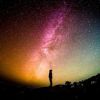 +12 +1
+12 +1Wikenigma - An Encyclopedia of Unknowns
Wikenigma is a unique wiki-based resource specifically dedicated to documenting fundamental gaps in human knowledge.
-
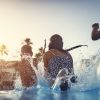 +21 +1
+21 +1You Could Save A Child From Drowning This Summer. Here's How
I'm going to let you in on one of the most important lessons I learned early on, in my years of training to become a doctor: Absolutely anyone can drown, or lose a loved one to a drowning. The Centers for Disease Control and Prevention estimates that more than 3,900 people die from unintentional drowning in the US each year — with one in five under 14-years-old. And for each pediatric fatality, another five children require emergency care for nonfatal drownings that can cause irreversible organ damage.
-
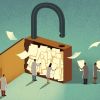 +20 +1
+20 +1Groundbreaking deal makes large number of German studies free to public
Three years ago, a group of German libraries, universities, and research institutes teamed up to force the three largest scientific publishers to offer an entirely new type of contract. In exchange for an annual lump sum, they wanted a nationwide agreement making papers by German authors free to read around the world, while giving researchers in Germany access to all of the publishers’ online content.
-
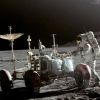 +13 +1
+13 +1Say goodbye to the information age: it’s all about reputation now
There is an underappreciated paradox of knowledge that plays a pivotal role in our advanced hyper-connected liberal democracies: the greater the amount of information that circulates, the more we rely on so-called reputational devices to evaluate it. What makes this paradoxical is that the vastly increased access to information and knowledge we have today does not empower us or make us more cognitively autonomous. Rather, it renders us more dependent on other people’s judgments and evaluations of the information with which we are faced.
-
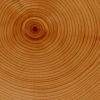 +15 +1
+15 +1As If!
Thomas Nagel reviews “As If: Idealization and Ideals” by Kwame Anthony Appiah.
-
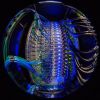 +27 +1
+27 +1Net neutrality is essential for access to knowledge
The Open Internet rules make sure that everybody can participate in knowledge online and help prevent a new digital divide between those who can pay for access to information and those who cannot afford to, despite being connected to the internet.
-
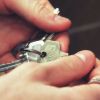 +15 +1
+15 +1Why you need to touch your keys to believe they’re in your bag
Now why would touch bring us more certainty? This verdict is at odds with what cognitive science tells us. By Ophelia Deroy.
-
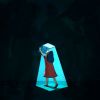 +18 +1
+18 +1The Troll Taunter
A young editor withstood a decade of online abuse. Now she’s fighting back — on Wikipedia itself. By Andrew McMillen.
-
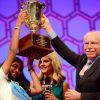 +17 +1
+17 +1How spelling became an ESPN sport
The delightful story of how the Scripps National Spelling Bee found a home on a sports network. By Ann-Derrick Gaillot.
-
 +6 +1
+6 +1What happens when you stare at the sun?
The benefits of looking directly at the sun might outweigh the costs. By Sam Kriss.
-
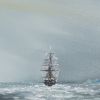 +11 +1
+11 +1Homo Faber
Discovering the infinite universe. By Lewis H. Lapham.
-
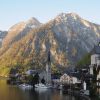 +28 +1
+28 +1All of Human Knowledge Buried in a Salt Mine
Fearful of digital decay, a ceramicist wants to return data storage to a more lasting medium: clay. By Richard Kemeny.
-
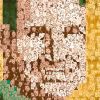 +15 +1
+15 +1A mathematical BS detector can boost the wisdom of crowds
Crowds aren’t as smart as we thought, since some people know more than others. A simple trick can find the ones you want. By George Musser.
-
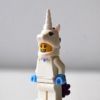 +30 +1
+30 +1I’m a Scientist, and I Don’t Believe in Facts
The benefits of a post-truth society. By Julia Shaw.
-
 +14 +1
+14 +1Arabic translators did far more than just preserve Greek philosophy
“What drove the political class of Abbasid society to support this enormous and difficult undertaking? Part of the explanation is no doubt the sheer utility of the scientific corpus: key texts in disciplines such as engineering and medicine had obvious practical application. But this doesn’t tell us why translators were paid handsomely…” Peter Adamson.
-
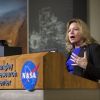 +39 +1
+39 +1Free Science: NASA Just Opened Its Entire Research Library to the Public
NASA is opening up its research library to the public in the newly launched web database PubSpace…and it’s absolutely free. NASA Chief Scientist Ellen Stofan believes that this move will benefit fellow scientists and engineers and accelerate innovation. “Making our research data easier to access will greatly magnify the impact of our research,” she said. “As scientists and engineers, we work by building upon a foundation laid by others.”
-
 +18 +1
+18 +1The New Hillary Library?
This is the time to think big about designing the digital future. It is a rare moment when a new regime can realign the modes of communication so that they serve the public interest, as the Constitution originally intended. By Robert Darnton.
-
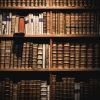 +14 +1
+14 +1The Human Fear of Total Knowledge
Why infinite libraries are treated skeptically in the annals of science fiction and fantasy. By Adrienne LaFrance. (June 3, 2016)
-
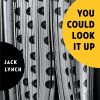 0 +1
0 +1‘You Could Look It Up’: The world before and since Wikipedia
You might guess that the revered 11th edition of the Encyclopaedia Britannica or the multi-volume Oxford English Dictionary is the greatest of all modern reference works. You would be wrong. That honor, as Jack Lynch reminds us in “You Could Look It Up,” must go elsewhere. “The Hitchhiker’s Guide to the Galaxy”— in the words of Douglas Adams — “has already supplanted the great Encyclopedia Galactica as the standard repository of all knowledge and wisdom...
-
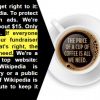 +22 +1
+22 +1Wikipedia has a ton of money. So why is it begging you to donate yours?
The question irks many of the site's core members, even though this is how most nonprofits work. By Caitlin Dewey.
Submit a link
Start a discussion




















